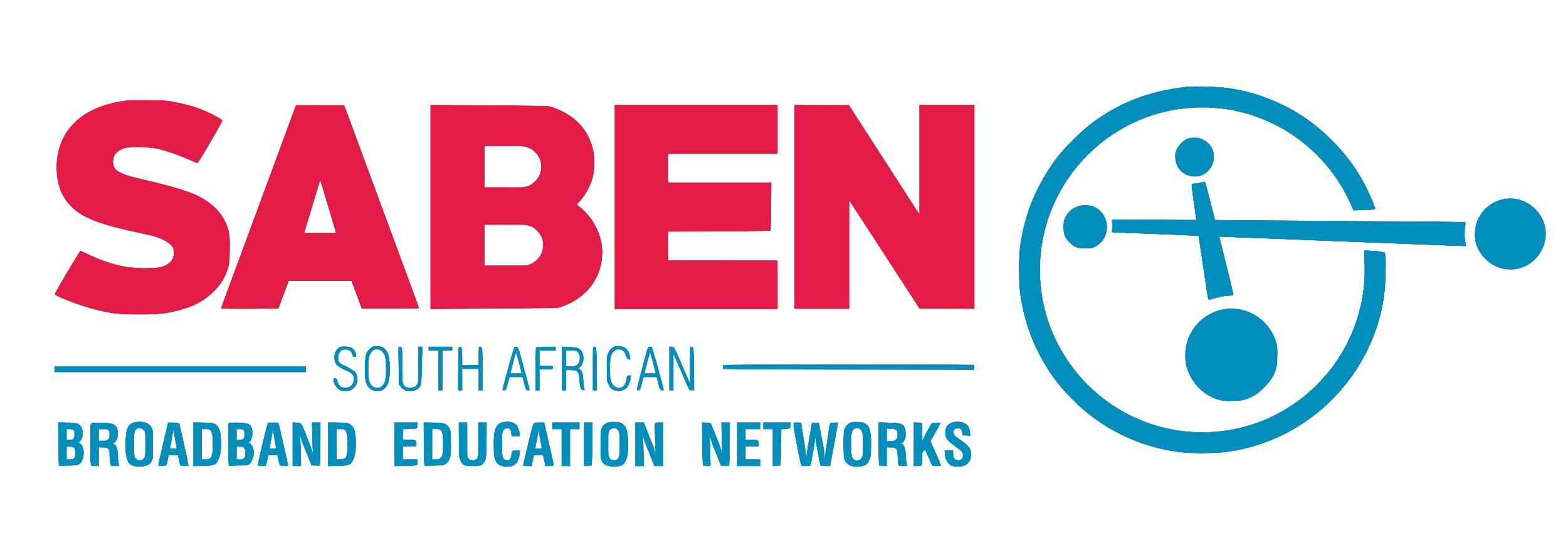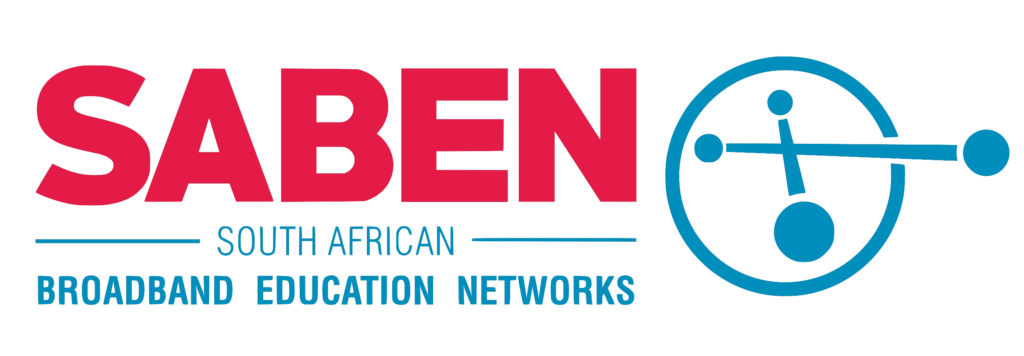FUNDERS
- Home
- Funders
issued by South African Broadband Educational Networks (SABEN) on DATE 2019
SABEN promotes broadband connectivity to improve education and management at 50 TVET colleges nationwide
As part of a renewed commitment to producing technically skilled graduates to help forge a national knowledge economy, the government is sponsoring the provision of high-speed, broadband connectivity to 50 technical vocational education and training (TVET) colleges across the country.
The project, which is implemented by the South African Broadband Educational Networks (SABEN) under the auspices of the Department of Higher Education and Training (DHET), seeks to address a severe lack of capacity at TVETs which is affecting not only their educational, but also their teaching and administrative, outputs.
President Cyril Ramaphosa States
Increased support for TVET colleges was prioritised.
while the recent amalgamation of the departments of higher education and science and technology has been hailed by analysts as heralding a more integrated approach to the promotion of a knowledge economy.
However, TVET colleges, which have a crucial role to play in meeting the training needs of the millions of South Africans who leave school with at best a Grade 12 certificate, are viewed as being less prestigious than universities and are frequently associated with poorly performing students.
Their image has been damaged by qualifications which have not been fully embraced by the labour market; weak administrative systems, which, for example, have resulted in certification backlogs; and a shortage of properly qualified teaching staff.
Such are the problems that only those students who are not accepted (or are not likely to be accepted) by universities, tend to enroll at the colleges, according to recent research commissioned by the government.
SABEN Project Funded With?
The SABEN project was established with a grant from the National Skills Fund (NSF) in response to such challenges.
It seeks to help TVET colleges manage their capacity shortfalls more effectively by deploying high-speed connectivity. In this regard, SABEN’s goal is to ease access to comprehensive information, research and educational resources which can offer invaluable support to students, teachers and administrators at the colleges.
By providing comprehensive, high-speed connectivity to the South African National Research and Education Network (SANReN), SABEN’s TVET Colleges Connection Project (TCCP) aims to help furnish students with the internet access and knowledge resources that they need to study and graduate, and provide lecturers and teachers with the research and teaching materials that they require to improve their educational offerings. The connectivity offered by SABEN will also support college administrators, easing their access to a full range of programmes and data that can support them in their management and planning efforts.
To meet the demands for the kind of workforce that is required to forge a knowledge economy, it has been recommended that more middle-level technicians and artisans, as well as entrepreneurs, need to be produced at TVET colleges. In a rapidly changing world, such students will need to be equipped to become “self-programmable” – that is, capable of combining and recombining available information to produce creative solutions to the shifting challenges that they will face in their work and social lives.
crucial to the development.
The deployment of enhanced broadband connectivity through the SABEN project is crucial to the development of such skills. For example, the rapid, selective assimilation and use of data gleaned from the internet constitutes an increasingly important skill in the job market. Students must be able to practise and hone such skills at college.
And lecturers must be able to guide them. Supporting the evolution of a post-school sector in line with the demands of the fourth industrial revolution, it has been advised that the skills of teachers and lecturing staff need to be improved. In this regard, the SABEN project can produce real benefits. For example, easier access to the actual information, research and training resources that constitute the potential learning platform can significantly improve the quality of the education received – particularly in a financially constrained environment, such as at TVET colleges, where such materials may be at a premium.
In this regard, the deployment of new information and communication technologies (ICTs), such as through the initiative pioneered by SABEN, can also help to democratise access to, and increase the quality of, educational opportunities by reducing the costs of training. The exploitation of connectivity to improve the scale and quality of the access further strengthens the tertiary education sector’s capacity to address the issue of unemployed youth more effectively, which is a key concern in producing a genuinely inclusive and equitable society.
Current Goal
The improved connectivity offered by SABEN can also help TVET administrators to manage their institutions more effectively. The goal is to increase their capacity to administer on a day-to-day basis and for the future. Policymakers have noted that the quality of the educational inputs for TVET colleges and SETA-supported learning programmes must be improved. In particular, courses need to be more tailored to student and employer needs. The analysis of big-data sets made possible through broadband connectivity can inform this process. Enhanced connectivity can also ease the establishment of better data-management systems at TVETs, which would enable more effective monitoring of institutional performance and facilitate its improvement.
SABEN, which is a not-for-profit (NPO) enterprise established with the sole aim of addressing broadband poverty in the TVET sector, has already helped to connect students and staff at 16 colleges with over 80 campuses and is aiming to connect all 50 public TVET colleges in the country within two years.
In implementing the TVET Campus Connection Project (TCCP), SABEN will purchase last mile connectivity and backhaul to selected points of presence (PoPs). The project is an infrastructural one, requiring capital expenditure to provide the connections. Subsequent monthly operational and maintenance costs will be paid by the TVETs. The bandwidth for the access is provided by SABEN’s sister organisation, the Tertiary Education and Research Network of South Africa (TENET).
SABEN engages directly with individual colleges to provide them with broadband access to the SANReN network, supporting its expansion as a platform for research, teaching and innovation. In order to promote the project, TVET principals are required to provide visionary, forward-looking leadership, understanding that the future impact of their institutions and the employability of their students in an economy shaped by a fourth industrial revolution depends on high-speed connectivity to, and the use of, the comprehensive information, research and educational resources offered by SANReN.
Ending Broadband Poverty
SABEN, which is a not-for-profit (NPO) enterprise established with the sole aim of addressing broadband poverty in the TVET sector, has already helped to connect students and staff at 16 colleges with over 80 campuses and is aiming to connect all 50 public TVET colleges in the country within two years.
In implementing the TVET Campus Connection Project (TCCP), SABEN will purchase last mile connectivity and backhaul to selected points of presence (PoPs). The project is an infrastructural one, requiring capital expenditure to provide the connections. Subsequent monthly operational and maintenance costs will be paid by the TVETs. The bandwidth for the access is provided by SABEN’s sister organisation, the Tertiary Education and Research Network of South Africa (TENET).
SABEN engages directly with individual colleges to provide them with broadband access to the SANReN network, supporting its expansion as a platform for research, teaching and innovation. In order to promote the project, TVET principals are required to provide visionary, forward-looking leadership, understanding that the future impact of their institutions and the employability of their students in an economy shaped by a fourth industrial revolution depends on high-speed connectivity to, and the use of, the comprehensive information, research and educational resources offered by SANReN.



